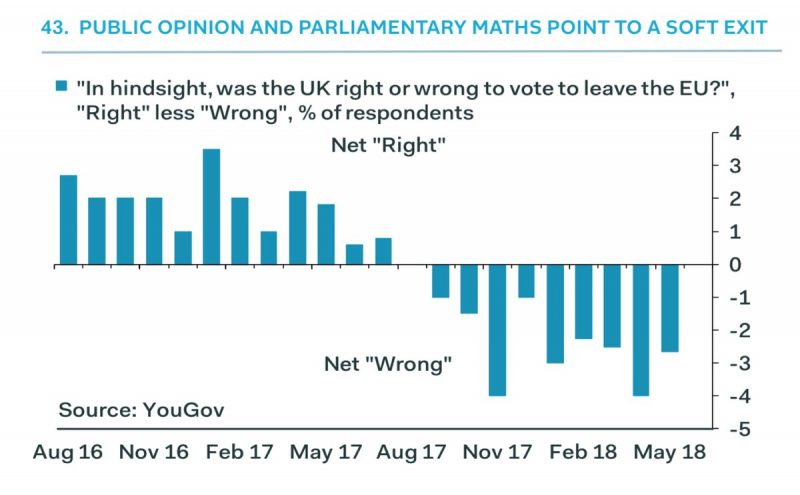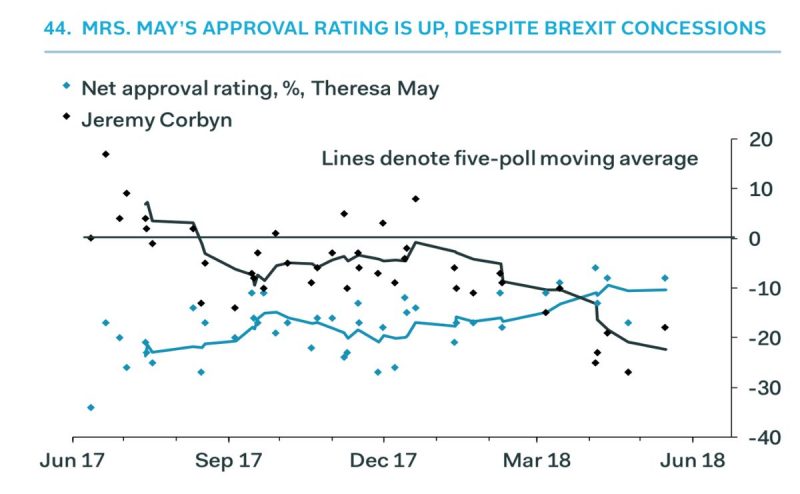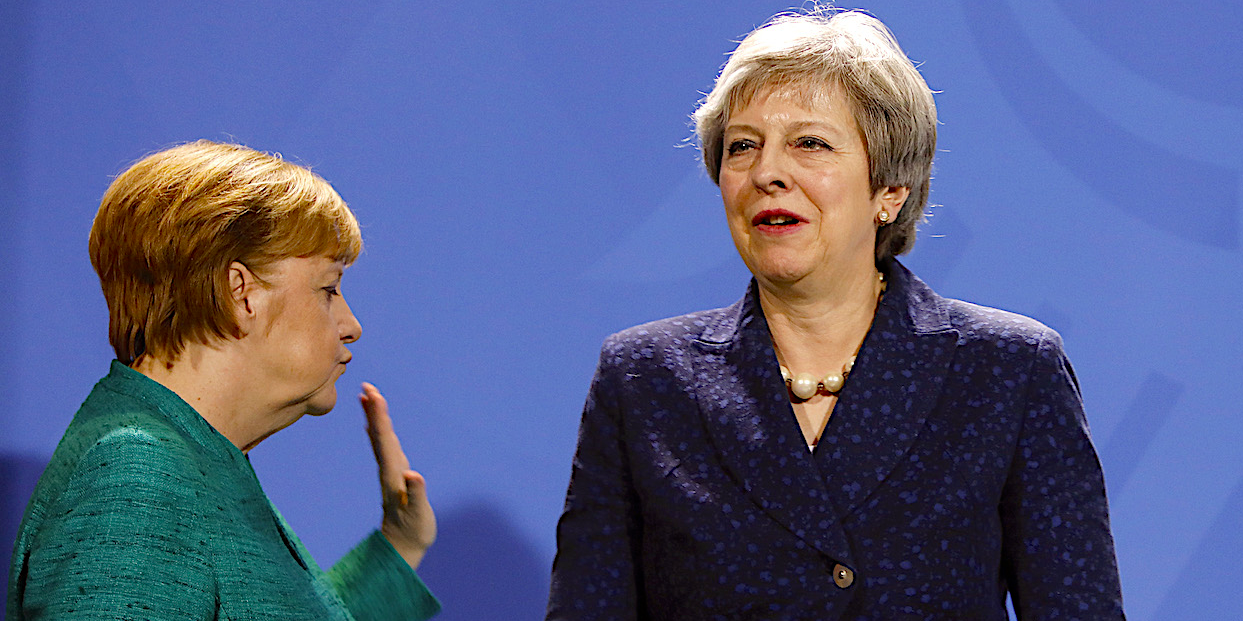- A 14th straight YouGov poll shows that a majority of people in the UK now believe the decision to leave the European Union was “wrong.”
- Prime Minister Theresa May’s net approval rating has moved upward.
- May has also made several incremental compromises that suggest she is negotiating for a “soft Brexit” from the EU.
- Is May’s popularity somehow pegged to the country’s newfound distaste for leaving?
LONDON – The British public has moved solidly into “Bregret” territory as a 14th straight YouGov poll shows that a majority of people now believe the decision to leave the EU was “wrong.” This was the most recent poll result:
- In hindsight, do you think Britain was right or wrong to vote to leave the European Union?
- Right: 43
- Wrong: 44
- Don’t Know: 13
- Source: YouGov poll published May 20, 2018.
The 1% difference is within the margin of error. However, a majority of the British have believed Brexit is “wrong” since about summer 2017, according to YouGov’s polls. Prior to that, they were marginally in favour of the EU Referendum result from 2016.
This chart (below) shows all those YouGov polls grouped into monthly averages. Opinion of Brexit has been negative, on average, for nine straight months:

The Brexit deadline is March 2019, just 10 months away. The polls suggest that as Britain goes through its historic departure from Europe, a majority of people wish it never happened.
At the same time, Prime Minister May's net approval rating has moved upward as she inches toward a soft Brexit, according to a moving average of opinion polls compiled by Pantheon Macroeconomics:

Pantheon analyst Samuel Tombs published the two charts next to each other in his most recent UK Chartbook, a monthly roundup of the most crucial charts on British economics.
Tombs has argued repeatedly - like a number of his colleagues in The City and on Wall Street - that the UK government will eventually cave and opt for a soft Brexit because the economic cost of crashing out of the EU would cause too much political damage to May's government. Also, a soft Brexit - in which Britain would stay in a customs union with the EU and remain close to its regulations - is the only compromise that can both command a majority in Parliament and go a long way to preserving the invisible Irish border.
Might May's popularity be pegged to the country's newfound distaste for leaving the EU? One potential theory is that remain voters prefer May as prime minister to the hardline rivals in her party who would prefer a "no deal" scenario that puts the economy at risk.

